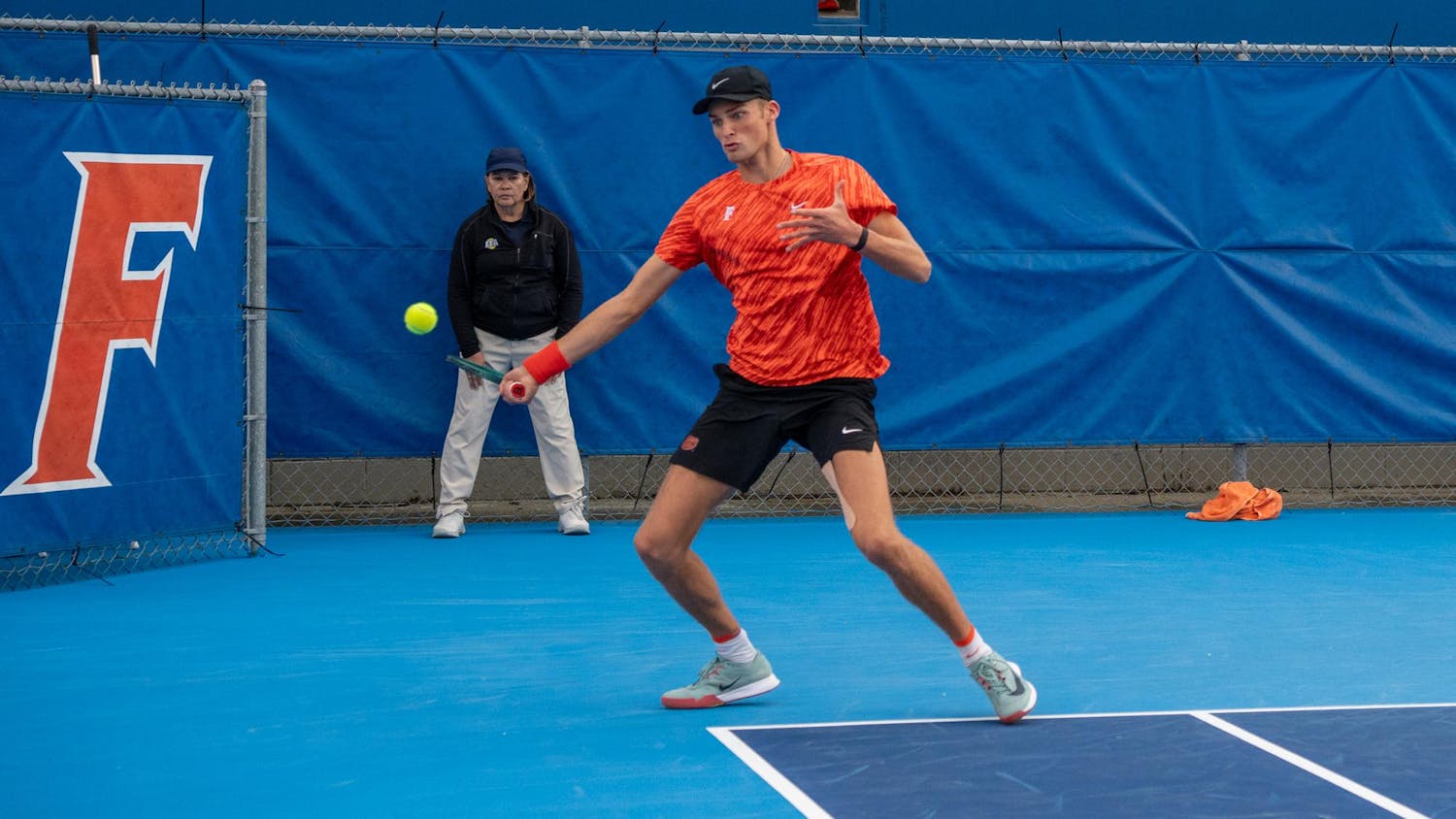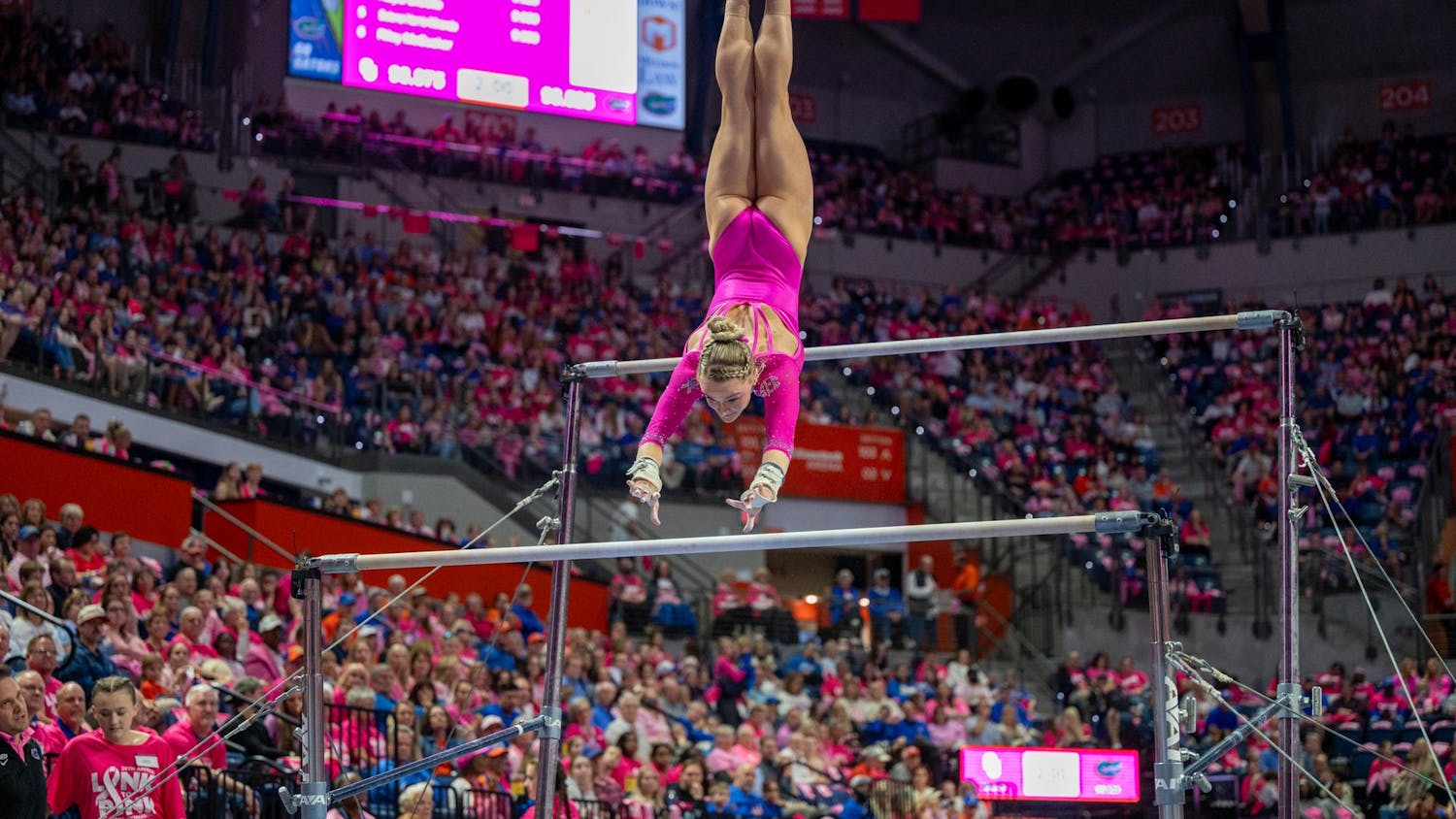Read more from The Alligator's "Ripple Effects" special section here.
Support for President Donald Trump rose in the 2024 election among Latino voters. At UF, where one in five students identifies as Hispanic or Latino, many students have found themselves at a crossroads between their political beliefs and those of their families.
Matthew de la Riva, a 21-year-old UF history senior, was raised in Miami by Brazilian parents. His parents view themselves as normal people and vote Republican because they believe it’s going to help their lives, he said. But he doesn’t think Latino voters should be viewed as a monolith trending toward one political direction.
From 2020 to 2024, Trump’s support among Latino voters rose by 8 percentage points, fueling the narrative that Latinos are leaning more conservative. But some say that perspective shadows the diversity of the Latino experience.
“You risk something when you say Latinos are getting more conservative,” de la Riva said. “Latinidad culture is not united. It's very diverse.”
De la Riva describes himself as a socialist, although his parents' opinions differ from his own — a cause he attributes to the generational divide.
While he associates his Brazilian culture with a strong sense of pride and sentimentality, de la Riva’s parents associate it with the country’s extensive history of political unrest and corruption — key characteristics affecting their vote.
For the 2024 presidential election, de la Riva voted for Cornel West, a philosopher and socialist, as a write-in candidate. His parents — who, up until 2020, voted for Democratic candidates — voted for Trump.
“Young people feel more open-minded to experiment,” he said.
Unlike de la Riva, 21-year-old UF psychology senior Yaretzi Garcia and her parents tend to agree in their political beliefs. Garcia is a registered Democrat.
Growing up, Garcia saw firsthand how her parents’ experiences and fears influenced their beliefs. Her parents are immigrants from Guatemala and Nicaragua — two countries with histories of communism.
She said she disagrees with the stereotyping of political affiliation among different nationalities. Garcia also believes many are taught to do so out of fear that communism might return.
“If everyone were to sit down and talk to each other, they would come to the sort of realization that we’re in the same fight,” Garcia said.
Garcia said the Democratic Party isn’t doing enough to protect immigrants amid tightening border policies and fears of deportation.
“We are at stake at the ballot,” she said. “Immigrants themselves are being used as a political tool.”
Garcia’s criticism of her own political party reflects a broader dissatisfaction among Democratic voters. Kevin Vargas, a 23-year-old UF urban and regional planning graduate student, agrees the party has done little to help Latino voters. Regardless, he voted for former Vice President Kamala Harris during the 2024 presidential election.
Vargas said his Mexican community is divided in the current political climate. Some align with socially conservative ideals, while others feel alienated by the increasing polarization pitting Latinos against one another.
“We think that Latinos that vote for Trump have pretty much betrayed their own,” Vargas said. “Whether that be for monetary gain or maybe to gain favor amongst white Republicans.”
Vargas’ first language is Spanish, and he grew up visiting family in Mexico during summer breaks.
Between 2020 and 2024, Vargas’ political interests have remained consistent, focusing on the rights of immigrants, economy and preservation of democracy.
“I feel a lot of what Republicans and right-wingers say about immigrants is pretty overblown,” he said. “We pay our mortgage, pay our debts, we contribute to this economy, we do essentially what every other American does.”
For younger voters like 18-year-old UF exploratory freshman Maya Zaldivar, political identity feels more tied to activism.
She said voting is essential to democracy and is one of the only ways for people to influence the government. Zaldivar became more politically active after the COVID-19 pandemic, she added, when she no longer felt stuck at home.
Zaldivar, who is Cuban and Colombian, voted for the first time locally, as a registered Democrat. In a recent referendum, she voted in favor of a referendum returning control of GRU to city leaders.
“A lot of us do vote conservative, but I think maybe it should be more important to question why,” Zaldivar said.
She said political leaders are not paying attention to Latino voters’ needs. Zaldivar also said Latinos have many of the same issues other demographics of voters do.
“It’s unfair to suggest that we’re somehow radically different … just because of where we’re from,” she said.
Julianna Bendeck is a contributing writer for The Alligator. Contact her at jbendeck@ufl.edu.
Julianna Bendeck is a contributing writer for The Alligator.






